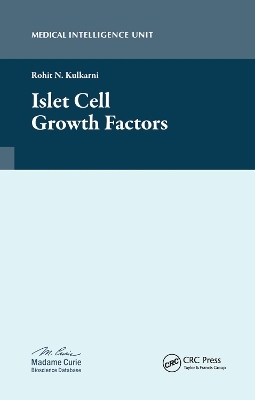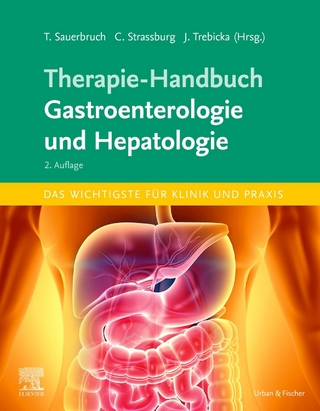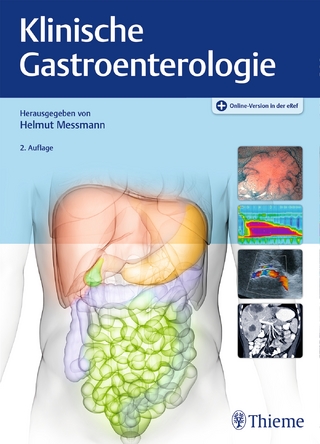
Islet Cell Growth Factors
Seiten
2019
CRC Press (Verlag)
978-0-367-44595-9 (ISBN)
CRC Press (Verlag)
978-0-367-44595-9 (ISBN)
This book contributes to the concepts in the area of islet cell regeneration with special reference to insulin secreting ß cells. It focuses on growth factor pathways, especially the insulin and insulin-like growth factor affecting ß cells in Type 1, Type 2 and gestational diabetes.
This book, Islet Cell Growth Factors, provides a timely contribution to the current thinking regarding the concepts in the area of islet cell regeneration with special reference to insulin secreting beta cells. The contributions are from leaders in the field with a long-standing interest in the area of islet biology.
In the first chapter Drs. Dirice and Kulkarni provide a broad introduction to the topic of islet cell regeneration with a focus on growth factor pathways, especially the insulin and insulin-like growth factor signaling mechanisms affecting beta cells in Type 1, Type 2 and gestational diabetes. This is followed by a contribution by Drs. Granot and Dor who describe an elegant lineage-trace model to confirm that proliferation is one of the major mechanisms underlying beta-cell regeneration in adult rodents. These findings are backed up by Drs. Georgia and Bhushan on cell cycle control in beta cells. Subsequent chapters are focused on proteins downstream of the growth factor pathways in the regulation of beta-cell biology. Thus, Drs. Ham and Stoffers discuss the role of the homeodomain protein, Pdx-1, on beta-cell growth while Dr. Bernal-Mizrachi describes the significance of Akt in beta-cell growth and function. Finally, Drs. Kitamura, Kitamura and Accili highlight the importance of the forkhead protein, FoxO1, in pancreatic betacells.
In addition to insulin and IGF-I, several other growth factors play an important role in modulating beta-cell growth. The pathway utilized by the hepatocyte growth factor is discussed by Drs. Gonzalez-Perusa, Alonso and Garcia-Ocana. The significance of pathways relevant for beta-cell proliferation and apoptosis during pregnancy and the postnatal period is nicely presented by Drs. Fujinaka, Wang, Matsushita and Vasavada. Together these chapters provide a comprehensive and mechanistic view of the signaling pathways that are relevant for mammalian beta-cell proliferation. This is an excellent book for the research scientist
This book, Islet Cell Growth Factors, provides a timely contribution to the current thinking regarding the concepts in the area of islet cell regeneration with special reference to insulin secreting beta cells. The contributions are from leaders in the field with a long-standing interest in the area of islet biology.
In the first chapter Drs. Dirice and Kulkarni provide a broad introduction to the topic of islet cell regeneration with a focus on growth factor pathways, especially the insulin and insulin-like growth factor signaling mechanisms affecting beta cells in Type 1, Type 2 and gestational diabetes. This is followed by a contribution by Drs. Granot and Dor who describe an elegant lineage-trace model to confirm that proliferation is one of the major mechanisms underlying beta-cell regeneration in adult rodents. These findings are backed up by Drs. Georgia and Bhushan on cell cycle control in beta cells. Subsequent chapters are focused on proteins downstream of the growth factor pathways in the regulation of beta-cell biology. Thus, Drs. Ham and Stoffers discuss the role of the homeodomain protein, Pdx-1, on beta-cell growth while Dr. Bernal-Mizrachi describes the significance of Akt in beta-cell growth and function. Finally, Drs. Kitamura, Kitamura and Accili highlight the importance of the forkhead protein, FoxO1, in pancreatic betacells.
In addition to insulin and IGF-I, several other growth factors play an important role in modulating beta-cell growth. The pathway utilized by the hepatocyte growth factor is discussed by Drs. Gonzalez-Perusa, Alonso and Garcia-Ocana. The significance of pathways relevant for beta-cell proliferation and apoptosis during pregnancy and the postnatal period is nicely presented by Drs. Fujinaka, Wang, Matsushita and Vasavada. Together these chapters provide a comprehensive and mechanistic view of the signaling pathways that are relevant for mammalian beta-cell proliferation. This is an excellent book for the research scientist
Kulkarni, Rohit N.
1. Pathways Underlying β-Cell Regeneration in Type 1, Type 2 and Gestational Diabetes 2. β-Cell Proliferation as the Major Determinant of Pancreatic β-Cell Mass 3. Cell Cycle Regulation and Beta Cells 4. Role of Pdx-1 in β-Cell Growth 5. Akt and Pancreatic β-Cell Growth and Function 6. Role of FoxO Proteins in Pancreatic β Cells 7. Hepatocyte Growth Factor (HGF) and the Pancreatic Beta Cell 8. Role of Parathyroid Hormone-Related Protein and Lactogens in the Pancreatic Beta Cell
| Erscheinungsdatum | 03.12.2019 |
|---|---|
| Verlagsort | London |
| Sprache | englisch |
| Maße | 152 x 229 mm |
| Gewicht | 453 g |
| Themenwelt | Medizin / Pharmazie ► Allgemeines / Lexika |
| Medizinische Fachgebiete ► Innere Medizin ► Gastroenterologie | |
| Naturwissenschaften ► Biologie ► Zellbiologie | |
| ISBN-10 | 0-367-44595-6 / 0367445956 |
| ISBN-13 | 978-0-367-44595-9 / 9780367445959 |
| Zustand | Neuware |
| Haben Sie eine Frage zum Produkt? |
Mehr entdecken
aus dem Bereich
aus dem Bereich
Buch | Softcover (2024)
Urban & Fischer in Elsevier (Verlag)
59,00 €


